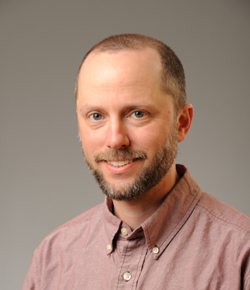BA, University of California-Berkeley. PhD, Hunter College. Taught courses or workshops at Lowell High School, University of San Francisco, University of California-Berkeley, Hayden Planetarium, Southern Connecticut State University, Hunter College, Stanford Synchrotron Radiation Lightsource, Brookhaven National Laboratory, Argonne National Laboratory, Ghent University in Belgium, the Synchrotron Light Research Institute in Thailand, Sarah Lawrence College, and Lehman College. Currently Pre-Health Program Director at Lehman College of the City University of New York. Authored XAFS for Everyone, a textbook on X-ray absorption spectroscopy, and Beyond Curie: Four Women in Physics and Their Remarkable Discoveries, 1903 to 1963. Co-authored Cartoon Physics: A Graphic Novel Guide to Solving Physics Problems and Examkrackers 1001 Questions in MCAT Chemistry, a best-selling chemistry-test prep book. Co-designed and produced an artisanal pop-up book promoting the National Synchrotron Light Source II facility. SLC, 2003–2017; 2022–
Undergraduate Courses 2024-2025
Physics
Astronomy
Open, Lecture—Year
PHYS 2019
On the first night, we will look up and see the stars. By the last, we will know what makes them “shine,” how they came to be, and their ultimate fates. In between, we will survey the universe and humankind’s investigations of it—from ancient navigation to modern cosmology. In addition to the stars themselves, we will learn about solar-system objects such as planets, asteroids, moons, and comets; the comparative astronomy of different eras and cultures; the properties, lifetimes, and deaths of galaxies, quasars, and black holes; and theories and evidence concerning the origin, evolution, and fate of the universe. In addition to readings and examination of multimedia material, students will be members of teams conducting astronomical observation and experiments—at first with an astrolabe, then a simple telescope, and finally with the most powerful telescopes on and around the Earth. Emphasis will be placed on modes of scientific communication, so that each student will participate in debates, present posters, write papers, and participate in the peer-review process. In addition, students will experience famous astronomical debates through role-play. Since science is a collaborative process, group work—both small and large—will be a central feature of this course.
Faculty
Previous Courses
Physics
Astronomy
Open, Lecture—Year
On the first night, we will look up and see the stars. By the last, we will know what makes them “shine,” how they came to be, and their ultimate fates. In between, we will survey the universe and humankind’s investigations of it—from ancient navigation to modern cosmology. In addition to the stars themselves, we will learn about solar-system objects such as planets, asteroids, moons, and comets; the comparative astronomy of different eras and cultures; the properties, lifetimes, and deaths of galaxies, quasars, and black holes; and theories and evidence concerning the origin, evolution, and fate of the universe. In addition to readings and examination of multimedia material, students will conduct astronomical observation and experiments—at first with an astrolabe, then a simple telescope, and finally with the most powerful telescopes on and around the Earth. Emphasis will be placed on modes of scientific communication, so that each student will participate in debates, present posters, write papers, and participate in the peer-review process. In addition, students will experience famous astronomical debates through role-play. Since science is a collaborative process, group work—both small and large—will be a central feature of this course.
